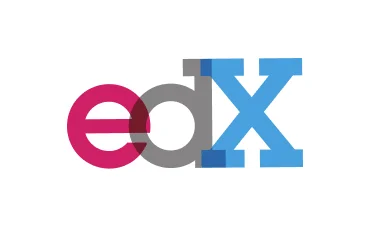When you enroll through our links, we may earn a small commission—at no extra cost to you. This helps keep our platform free and inspires us to add more value.

UMD, USMx: Agile Process, Project, and Program Controls
Learn Agile controls that get work done with confidence by using true transparency (actuals not estimates) and continuous improvement to ensure your people, process, and products deliver valuable, working solutions.

This Course Includes
 edx
edx 4.4 (12 reviews )
4.4 (12 reviews ) 4 weeks at 2-3 hours per week
4 weeks at 2-3 hours per week english
english Online - Self Paced
Online - Self Paced course
course USMx
USMx
About UMD, USMx: Agile Process, Project, and Program Controls
Agile provides greater opportunities for control and risk management and offers unique benefits that traditional methods miss. As a project manager or program manager the emphasis should always be on delivering value and benefits. With complex projects these demand increase and knowing you've delivered value can be difficult for even those with years of project management experience.
However, in this course we'll cover the agile practices and management skills necessary to delivery value with certainty, such as:
Transparency with daily standup meetings discussing work status, risk, and pace.
How a clear definition of done drives acceptance by all key stakeholders.
Measuring performance and benefits of working solutions during project delivery.
Iteratively testing to gain authentic feedback on solution requirements and stability.
Regular retrospectives that drive continuous improvement into the team.
How agile project management ensures success and uniquely tackles business risk
Quality management principles to reduce project risk and technical debt
Manage and reduce interdependencies between project teams to scale programs at speed
Making the business case for agile contracts and how they ensure deliverables achieve business outcomes and objectives
In this course, you will learn how these levers of control far exceed traditional management methods of earned value management (EVM), which relies on estimates and no changes in scope. We'll discuss how the key to unlocking the control potential is to learn what to manage, and how to measure it. It's no longer just ensure the deliverables are delivered on-time and under-budget.
This shift to benefits management is in-line with how the PMBOK is changing to integrate program management concerns into project management with an emphasis on value and not just delivery of scope specifications. The Agile revolution requires program managers to embrace this type of continuing education to advance and grow in your project management career.
So how do programs ensure smooth project delivery?
This answer is bottoms-up with different controls at each level of management, separating the concerns between the program, the individual projects, and the team processes. For teams, it’s a focus on team velocity and how to ensure its measurement is useful for diagnosing internal and external productivity constraints. For the project, the focus is on how to integrate teams of teams on related projects and ensure stead delivery of product roadmaps. For the program, the focus is on what capabilities are delivered and how to measure return on investment (ROI) capabilities provide. This also requires understanding your portfolio and contracting processes.
While this course will not make you an agile certified practitioner (PMI-ACP), or certified scrum master (CSM), it offers a more fundamental agile certification based on agile principles and how agile leadership is applied in industry today. You'll finish this course more than ready to continue your agile journey, which we hope either completes your certificate with us or takes you to one of our most popular courses in the series, "Agile Leadership Principles and Practices."
Upon successful completion of this course, learners can earn 10 Professional Development Unit (PDU) credits, which are recognized by the Project Management Institute (PMI). PDU credits are essential to those looking to maintain certification as a Project Management Professional (PMP).
What You Will Learn?
- Agile systems engineering to ensure valuable, integrated solutions .
- Controlling projects through actual measurements vs. estimates (e.g. EVM) .
- Essential methods for managing People, Process, and Product on empowered teams .
- How to always be closing (ABC) with every project increment using a definition of done .
- How real-world constraints and agile simplify portfolio management and decision science methods: go beyond LP, IP, and Genetics-based Search .
- Enterprise alignment: how and why strategic plans, portfolio optimization, and project management canalign with simple metrics, with facilitative leadership .